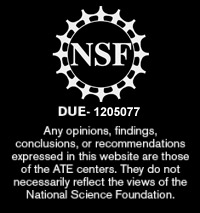RECORDED WEBINARS 2017
Thursday, November 16, 2017
The Role of Advisor, Counselor, Career Coach
Advisors, counselors and career coaches play important roles for students as they plan for their careers. Lack of accurate information can be costly in dollars and time. Frequently, the academic education does not adequately prepare individuals for jobs that require 21st century skills. This webinar focuses on the roles of professionals who can assist students in making wise decisions as they prepare for technical careers.
Presenters:
 Elaine Johnson
Elaine Johnson PI and Executive Director
Bio-Link
Biography
Elaine Johnson, Ph.D. is the PI and Executive Director of Bio-Link, a National Science Foundation Advanced Technological Education National Center for Biotechnology and Life Sciences based at City College of San Francisco.
Elaine participates in several ATE National Visiting Committees. She served on the Advisory Board for the AAAS Vision and Change in Undergraduate Biology Education. In addition, she was one of the hub leaders of the Community College Consortium for Bioscience Credentials Department of Labor Trade Adjustment Assistance Community College Career Training Grant, is a Mentor for the Mentor-Connect project, and provides technical assistance through the CCTA.
 James Lewis
James Lewis Faculty Member
City College of San Francisco
Biography
James Lewis has lead the development of several career pathway programs with integrated curricula to help students strengthen basic math and language skills while training for jobs in high-wage technical fields, most notably, CCSF’s Bridge to Biosciences Program. Over the last decade, he has administered all aspects of the program, including outreach and recruitment, curriculum development, dedicated counseling, career coaching, workplace learning and career exploration opportunities; he has worked on program assessment, written reports, hiring, training and supervising program staff, and fund-raising. He has advised other community colleges interested in adopting similar bridge programs, helping them develop viable development strategies at their institutions. He has over 15 years of experience helping at-risk students take advantage of support services and special opportunities.
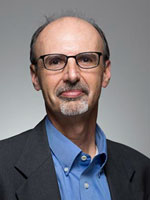 John Carrese
John Carrese Director
San Francisco Bay Center of Excellence for Labor Market Research
Biography
John Carrese is the Director of the San Francisco Bay Center of Excellence for Labor Market Research hosted at City College of San Francisco. John implements the Center’s environmental scanning, partnership development and technical assistance activities on behalf of the 28 community colleges in the San Francisco Bay Area. He has over 25 years of experience in the workforce and economic development field and is skilled in facilitation and team development. John served as Innovation Coach for Bio-Link’s National Science Foundation-funded Synergy project, which disseminated CCSF’s Bridge to Biotech program to community colleges nationally. Responsibilities included facilitating team meetings, incorporating scale-up concepts and tools within the Bridge to Biotech dissemination, outreaching to community colleges and providing support to adopting colleges.
VIEW SLIDESVIEW RECORDINGVIEW TRANSCRIPT
Thursday, October 19, 2017
Career Exploration
In this age of emerging technologies, many students and their parents have not been exposed to the great variety of careers open to them. Career exploration is taking on an increasingly important role in community college programs. This webinar provides examples of career exploration tools that are available to students, teachers, faculty members, counselors and others who are interested in assisting students make wise career choices.
Presenters:
 Elaine Johnson
Elaine Johnson PI and Executive Director
Bio-Link
Biography
Elaine Johnson, Ph.D. is the PI and Executive Director of Bio-Link, a National Science Foundation Advanced Technological Education National Center for Biotechnology and Life Sciences based at City College of San Francisco.
Elaine participates in several ATE National Visiting Committees. She served on the Advisory Board for the AAAS Vision and Change in Undergraduate Biology Education. In addition, she was one of the hub leaders of the Community College Consortium for Bioscience Credentials Department of Labor Trade Adjustment Assistance Community College Career Training Grant, is a Mentor for the Mentor-Connect project, and provides technical assistance through the CCTA.
 Sandra Porter
Sandra Porter President/Founder
Digital World Biology, LLC
Biography
Dr. Sandra Porter is the president and founder of Digital World Biology LLC, a company that creates educational tools for exploring the intersection of science, data, and art. She also teaches bioinformatics and helps manage the Bio-Link on-line community. She has been a tenured professor in biotechnology; a research scientist at Geospiza, a bioinformatics software company; and most recently, an entrepreneur.
VIEW SLIDESVIEW RECORDINGVIEW TRANSCRIPT
Thursday, September 21, 2017
Preparing for the Future
The Ins and Outs of Succession Planning Succession planning is an organizational strategy in which employees are recruited and developed so that each key role is consistently and continuously filled. A good plan for succession ensures continuity in organizational and positional knowledge. No matter its size, each organization needs a system for identifying necessary knowledge and embedding that knowledge for sustainability and success. Join us to learn and share good practices and ideas for ensuring continuous knowledge and how succession planning can impact the sustainability of any organization, including educational consortia.
Presenters:
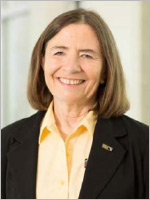 Marilyn Barger
Marilyn Barger Principal Investigator (PI) & Executive Director
Florida Advanced Technological Education Center, FLATE
Biography
Dr. Marilyn Barger is the Principal Investigator and Executive Director of FLATE, the Florida Regional Center of Excellence for Advanced Technological Education, funded by the National Science Foundation and housed at Hillsborough Community College in Tampa, Florida since 2004. She earned a B.A. in Chemistry at Agnes Scott College and both a B.S. in Engineering Science and a Ph.D. in Civil Engineering (Environmental) from the University of South Florida, where her research focused on membrane separation science and technologies for water purification. She has over 20 years of experience in developing curricula for engineering and engineering technology for elementary, middle, high school, and post-secondary institutions, including colleges of engineering. Dr. Barger serves on several national panels and advisory boards for technical programs, curriculum and workforce initiatives, including the National Association of Manufacturers Educators’ Council. She is a Fellow of the American Society of Engineering Education, a member of Tau Beta Pi and Epsilon Pi Tau honor societies. She is a charter member of both the National Academy and the University of South Florida‘s Academy of Inventors. Dr. Barger holds a licensed patent and is a licensed Professional Engineer in Florida.
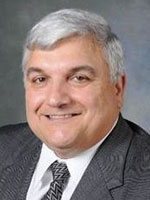 Phil Centonze
Phil Centonze Director of Client Engagement
FloridaMakes
Biography
For over 25 years Phil Centonze has guided and advised senior leaders, across all sectors, in business performance improvement. He is focused on strategically-oriented performance improvement through implementation of proven methods in strategic planning, process management, and workforce development. As a Florida Sterling Council judge and 17-year Master Examiner and Baldrige examiner, he has extensive experience in Baldrige-based management systems and assessment, as well as Lean Six Sigma Process Management improvement initiatives. Phil has been deeply involved in training and advising teams of managers and employees to reduce costs and improve productivity and performance. He graduated from the United States Coast Guard Academy with a BS degree in engineering and has an MBA from Florida International University in Miami.
VIEW SLIDESVIEW RECORDINGVIEW TRANSCRIPT
Thursday, August 17, 2017
How To Mine Job Listings To Parse Employer’s Need
Although we often claim we have good relationships with industry sometimes it seems we can’t speak the same language when matching our program graduates with jobs. Today there are new approaches to using the information contained in job listings to better match and align educational offerings to workforce demands. Today’s catch word is “data mining” and that is exactly the approach used here. We look at examples of using information from systems like Burning Glass to refine curriculum to better match program content with industry demand. In this webinar we will discuss what is discover-able and how to use that information.
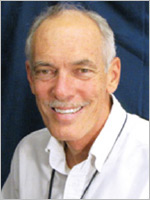
Michael Lesiecki
Principal Luka Partners LLC
Biography
Dr. Michael Lesiecki has over 20 years of experience championing collaborative-driven development, educational program growth, assessment, and advocacy. His federal grants development, management, and evaluation experience includes proposals and projects up to $20M. With a Ph.D. in Physical Chemistry and collaborative industry experience, Dr. Lesiecki is uniquely knowledgeable about STEM education and high tech domains. Over the past two decades he has been deeply involved with the National Science Foundation’s Advanced Technological Education program serving as Principal Investigator, External Evaluator and Peer Reviewer.
VIEW SLIDES VIEW RECORDINGVIEW TRANSCRIPT
Thursday, June 15, 2017
Using Prior Learning Assessments for recruitment and retention of special adult populations
This webinar will offer insights into developing an effective recruitment strategy that encompasses Prior Learning Assessment (PLA) coupled with other methods to reach your goals. Proven approaches will be shared for recruiting special underrepresented populations such as minority groups, specific age groups, Native Americans, those with disabilities, and the socioeconomically disadvantaged. Practical and proactive strategies for increasing recruitment and decreasing drop outs will be highlighted.
Presenters:
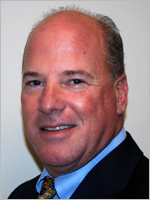 Rick Roberts
Rick Roberts Assistant Director
SC ATE Center
Biography
Rick Roberts has extensive experience in all sectors of industry and education. He currently is the Assistant Director for the South Carolina Advanced Technological Education Center at Florence Darlington Technical College, Florence S.C. As Assistant Director, he manages a large industry consortium and an internship program for students in advanced technology programs that is a driver of economic development in the region. Previously, he was the Director of Career Services at the Community College of Allegheny County, Pittsburgh, Pa where he worked with industry and across a multi-campus system serving more than 28,000 credit and 18,000 non-credit students to help place students in internships, apprenticeships, and jobs. He has also served in various management/supervisory positions within non-profit organizations and private industry where he served as a User Analyst/Subject Matter Expert for Lockheed Martin IMS. Mr. Roberts holds a Bachelor’s degree in Police Administration from Eastern Kentucky University, and a Master’s degree in the Administration of Justice from Shippensburg University.
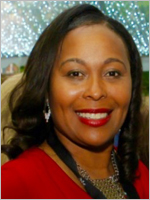 Serita Acker
Serita Acker Executive Director of the Programs for Educational Enrichment & Retention and Women in Science & Engineering
Clemson University
Biography
Serita Acker is the Executive Director of the Programs for Educational Enrichment and Retention and Women in Science and Engineering at Clemson University. She attended Lander University, in Greenwood, SC, earning her Bachelor of Science degree. Serita continued her studies at Clemson University, Clemson, SC where she earned a Masters of Human Resource and Development. Her areas of concentration were management and technology, training and development. She is also a Global Career Facilitator with a special focus on educating audiences about opportunities in STEM.
Serita Acker joined Clemson’s Programs for Educational Enrichment and Retention (PEER) staff 14 years ago to work with minority engineering students. There she became the director of Women in Science and Engineering (WISE). Under her leadership, WISE has expanded to include outreach programs for females from kindergarten through 12th grade, as well as, current undergraduate female students. The Women in Engineering Proactive Network, a national organization, honored WISE, under the direction of Serita Acker, with the 2005 Women in Engineering Initiative Award for the program’s success in attracting and retaining women in science-based majors. Serita Acker was also recognized as the Clemson University’s 2005 Outstanding Woman Award. Serita was awarded by the National Engineering Foundation awarded for her involvement with the Girls Scouts. She was awarded by the Career Communications College Level Promotion of Education (national organization). Serita was featured in Women of Color in STEM magazine, fall 2014 edition.
She has also served as a Diversity Trainer for Clemson University for many years and in 2015 was the Martin Luther King Jr, Diversity Award at Clemson University and the Calder D. Elrmann Upstate Diversity Leadership Award. She is a member of the SC Assess and Equity organization, and a past member of the President’s Commission on the Status of Women at Clemson University. She has worked with other various student organizations such as : Society of Women Engineers, National Society of Black Engineers to promote STEM. She is very active in other local and state community to promote STEM education and promotion of engineering fields. She served a Mentor for the Mentorlinks thru the American Association of Community Colleges.
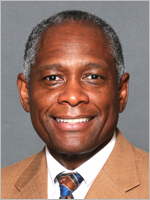 Donald McCoy
Donald McCoy K-to-College STEM Education Consultant
Biography
Donald McCoy retired from the IBM Corporation with thirty years of service with experiences as a senior engineer and responsibilities in people, process, project, and program management. His career highlights includes product development, manufacturing product test development, consulting technical services and marketing, and corporate headquarters assignments in human resources. Mr. McCoy served two years on an international product development assignment to IBM United Kingdom at the Hursley and Havant England locations (near London).
His last decade at IBM was spent in corporate headquarters focused on K-to-College initiatives and outreach programs designed to attract, develop, and retain the representation of diverse technical talent and workforce readiness programs. Programs and projects included diversity pipeline workplace strategies, budget and operations management, workshop facilitation, technology camps, career fairs, conferences, and mentoring programs.
Today Donald is a K-to-College STEM (Science, Technology, Engineering, and Mathematics) Education Consultant. Launched in 2010, Donald McCoy and Associates, LLC business clients and partners include educational institutions, government agencies, corporations, and non-profits. His list of completed STEM consulting, presentations, and workshop projects include American Association of Community Colleges, North Carolina A&T State University, North Carolina State University, U.S. Department of Education, U.S. Department of Labor, NC Department of Public Instruction, National Science Foundation NVC, NASA K-12 Initiatives, IBM Corporation, Middle and Early Colleges, and K-12 Charter and Public Schools.
Mr. McCoy serves on Business and STEM Advisory Boards including, National Science Foundation – Advanced Technological Education and Necessary Skills Now Programs, Center for Occupational Research and Development, North Carolina State University Women and Minority Engineering Programs, Butler Academy, and Wake STEM Early College High School.
Mr. McCoy graduated from Old Dominion University, Norfolk, VA with a B.S. in Electrical Engineering Technology in 1979. He earned an A.A.S. degree in Electronics Technology from the College of the Albemarle Community College in Elizabeth City, NC in 1976.
VIEW SLIDES VIEW RECORDINGVIEW TRANSCRIPT
Thursday, May 18, 2017
Creating Dashboards For Grants Development And Management
Grant directors, grant developers and resource development personnel are all managers today. They are increasingly queried about evaluation, outcomes, evidence and data management. A useful tool for managers is the project dashboard.
In this webinar we will:- Define dashboard elements
- Distinguish informational elements from trends and Key Performance indicators (KPIs)
- Create ownership to make the dashboard a dynamic reporting tool
- Develop your own dashboard with examples you can use
Presenter:
 Michael Lesiecki
Michael Lesiecki Director
MATEC
Biography
Mike Lesiecki, PhD, is the director of the Maricopa Advanced Technology Education Center (MATEC) at the Maricopa Community Colleges. He is the Principal Investigator for a grant from the National Science Foundation’s Advanced Technological Education program. Mike has been the host and facilitator of over 200 professional development webinars, working with a diverse group of clients to provide materials, and training that enables students, faculty, and technicians to continuously master the evolving competencies in science, mathematics, technology, and communications required by the workforce of the semiconductor, electronics, and advanced manufacturing industries. Mike received his PhD in Physical Chemistry from Oregon State University and has 27 peer-reviewed journal publications and one patent. He has taught in university, community college, and high school settings and worked in high tech industries as well.
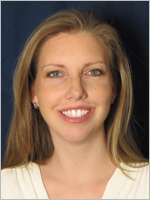 Lara Smith
Lara Smith Grants Coordinator
GateWay Community College
Biography
Lara Smith has been a grants professional for over 10 years and is a Bronze Level Certified Evaluation Professional in the Kirkpatrick Evaluation Methodology. Her experience encompasses managing grant application development, successful implementation, evaluation, compliance, and reporting. Mrs. Smith’s leadership and evaluation experience with federally-funded programs includes serving as Co-Principal Investigator on multiple National Science Foundation (NSF) grants; Internal Evaluator for an NSF National Resource Center; Project Manager for several NSF projects; and as an NSF Research Associate.
VIEW SLIDES VIEW RECORDINGVIEW TRANSCRIPT
Thursday, April 27, 2017
Q & A: Follow-Up Discussion:
Final Tips for a Competitive Proposal
This session will provide an opportunity for viewers of the recent CCTA webinar: Final Tips for a Competitive Proposal, to discuss questions they may still have concerning information shared at the April 20th webinar.
Presenters:
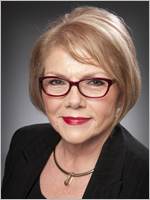 Ann Beheler
Ann Beheler Principal Investigator (PI)
National Convergence Technology Center (CTC)
Biography
Ann Beheler has been in the Information Technology industry for over 30 years, and she is now responsible for Emerging Technology grants at Collin College. In that capacity she leads the National Convergence Technology Center, a $4.4 million National Science Foundation Center of Excellence. She has also recently completed an almost $20 million DOL TAACCCT grant. A major focus of these grants is sharing resources including initiatives, curriculum, equipment, and general best practices among 46+ colleges to improve programs nationally. Beheler has experience in industry, leading her own consulting firm, teaching the first vendor-specific networking degree program in Texas, and managing IT-related corporate divisions. She has prior experience as a Vice President of Academic Affairs and as a Dean.
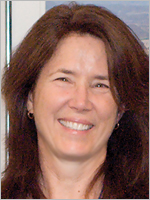 Celeste Carter
Celeste Carter Lead Program Officer
National Science Foundation
Biography
Celeste Carter is the Program Director for the Division of Undergraduate Education (DUE) at the National Science Foundation (NSF). She received her Ph.D. in Microbiology from the Pennsylvania State University School of Medicine in 1982 under the direction of Dr. Satvir S. Tevethia. She completed her postdoctoral studies in the laboratory of Dr. G. Steven Martin at the University of California at Berkeley. Carter joined the Division of Biological and Health Sciences at Foothill College in 1994 to develop and head a Biotechnology Program. She served as a Program Director twice in DUE as a rotator. Carter accepted a permanent Program Director position in DUE in 2009; she is the Lead Program Director for the Advanced Technological Education (ATE) Program, and works on other programs in the Division and across the Foundation. She served as the Education and Human Resources Liaison to the Division of Polar Programs from 2012 to 2014.
VIEW SLIDES VIEW RECORDING VIEW A. BEHELER TEMPLATE VIEW TRANSCRIPT
Thursday, April 20, 2017
Final Tips for a Competitive Proposal
This final webinar in the four part series for writing a competitive ATE project grant proposal will provide best practices for finalizing and refining your proposal to get it ready for submission. This session will provide specific examples of common mistakes and pitfalls and ways to avoid them. A proposal checklist will be highlighted by several experienced Principal Investigators.
A follow-up question and answer webinar session will be provided, Thursday, April 27 at 3pm ET, to address and discuss any questions attendees may have concerning the materials shared today. To register for this Q & A session, please see below.
Presenters:
 Ann Beheler
Ann Beheler Principal Investigator (PI)
National Convergence
Technology Center (CTC)
Biography
Ann Beheler has been in the Information Technology industry for over 30 years, and she is now responsible for Emerging Technology grants at Collin College. In that capacity she leads the National Convergence Technology Center, a $4.4 million National Science Foundation Center of Excellence. She has also recently completed an almost $20 million DOL TAACCCT grant. A major focus of these grants is sharing resources including initiatives, curriculum, equipment, and general best practices among 46+ colleges to improve programs nationally. Beheler has experience in industry, leading her own consulting firm, teaching the first vendor-specific networking degree program in Texas, and managing IT-related corporate divisions. She has prior experience as a Vice President of Academic Affairs and as a Dean.
 Celeste Carter
Celeste Carter Lead Program Officer
National Science Foundation
Biography
Celeste Carter is the Program Director for the Division of Undergraduate Education (DUE) at the National Science Foundation (NSF). She received her Ph.D. in Microbiology from the Pennsylvania State University School of Medicine in 1982 under the direction of Dr. Satvir S. Tevethia. She completed her postdoctoral studies in the laboratory of Dr. G. Steven Martin at the University of California at Berkeley. Carter joined the Division of Biological and Health Sciences at Foothill College in 1994 to develop and head a Biotechnology Program. She served as a Program Director twice in DUE as a rotator. Carter accepted a permanent Program Director position in DUE in 2009; she is the Lead Program Director for the Advanced Technological Education (ATE) Program, and works on other programs in the Division and across the Foundation. She served as the Education and Human Resources Liaison to the Division of Polar Programs from 2012 to 2014.
VIEW SLIDES VIEW RECORDINGVIEW TRANSCRIPT
Wednesday, March 29, 2017
Q & A: Follow-Up Discussion
Developing Stakeholder Partnerships Internally and Externally for Successful Grants
This session will provide an opportunity for viewers of the recent CCTA webinar: Developing Stakeholder Partnerships Internally and Externally for Successful Grants, to discuss questions they may still have concerning information shared at the March 23rd, webinar.
Presenters:
 Elaine Johnson
Elaine Johnson PI and Executive Director
Bio-Link
Biography
 Marilyn Barger
Marilyn Barger Principal Investigator (PI) & Executive Director
Florida Advanced Technological Education Center, FLATE
Biography
Dr. Marilyn Barger is the Principal Investigator and Executive Director of FLATE, the Florida Regional Center of Excellence for Advanced Technological Education, funded by the National Science Foundation and housed at Hillsborough Community College in Tampa, Florida since 2004. She earned a B.A. in Chemistry at Agnes Scott College and both a B.S. in Engineering Science and a Ph.D. in Civil Engineering (Environmental) from the University of South Florida, where her research focused on membrane separation science and technologies for water purification. She has over 20 years of experience in developing curricula for engineering and engineering technology for elementary, middle, high school, and post-secondary institutions, including colleges of engineering. Dr. Barger serves on several national panels and advisory boards for technical programs, curriculum and workforce initiatives, including the National Association of Manufacturers Educators’ Council. She is a Fellow of the American Society of Engineering Education, a member of Tau Beta Pi and Epsilon Pi Tau honor societies. She is a charter member of both the National Academy and the University of South Florida‘s Academy of Inventors. Dr. Barger holds a licensed patent and is a licensed Professional Engineer in Florida.
 Ann Beheler
Ann Beheler Principal Investigator (PI)
National Convergence Technology Center (CTC)
Biography
Ann Beheler has been in the Information Technology industry for over 30 years, and she is now responsible for Emerging Technology grants at Collin College. In that capacity she leads the National Convergence Technology Center, a $4.4 million National Science Foundation Center of Excellence. She has also recently completed an almost $20 million DOL TAACCCT grant. A major focus of these grants is sharing resources including initiatives, curriculum, equipment, and general best practices among 46+ colleges to improve programs nationally. Beheler has experience in industry, leading her own consulting firm, teaching the first vendor-specific networking degree program in Texas, and managing IT-related corporate divisions. She has prior experience as a Vice President of Academic Affairs and as a Dean.
VIEW SLIDES VIEW RECORDING VIEW TRANSCRIPT
Thursday, March 23, 2017
Developing Stakeholder Partnerships Internally and Externally for Successful Grants
In addition to developing a good idea with supporting goals and activities, it is imperative that key stakeholders both internal and external be committed to the work of the proposed grant. This session will focus on the various types of stakeholders including, but not limited to, the main institution’s and any partner institution’s administration, staff, and faculty; a strong evaluator with a detailed evaluation plan; and engaged business, industry, and community members.
Presenters:
 Elaine Johnson
Elaine Johnson PI and Executive Director
Bio-Link
Biography
 Marilyn Barger
Marilyn Barger Principal Investigator (PI) & Executive Director
Florida Advanced Technological Education Center, FLATE
Biography
Dr. Marilyn Barger is the Principal Investigator and Executive Director of FLATE, the Florida Regional Center of Excellence for Advanced Technological Education, funded by the National Science Foundation and housed at Hillsborough Community College in Tampa, Florida since 2004. She earned a B.A. in Chemistry at Agnes Scott College and both a B.S. in Engineering Science and a Ph.D. in Civil Engineering (Environmental) from the University of South Florida, where her research focused on membrane separation science and technologies for water purification. She has over 20 years of experience in developing curricula for engineering and engineering technology for elementary, middle, high school, and post-secondary institutions, including colleges of engineering. Dr. Barger serves on several national panels and advisory boards for technical programs, curriculum and workforce initiatives, including the National Association of Manufacturers Educators’ Council. She is a Fellow of the American Society of Engineering Education, a member of Tau Beta Pi and Epsilon Pi Tau honor societies. She is a charter member of both the National Academy and the University of South Florida‘s Academy of Inventors. Dr. Barger holds a licensed patent and is a licensed Professional Engineer in Florida.
 Ann Beheler
Ann Beheler Principal Investigator (PI)
National Convergence Technology Center (CTC)
Biography
Ann Beheler has been in the Information Technology industry for over 30 years, and she is now responsible for Emerging Technology grants at Collin College. In that capacity she leads the National Convergence Technology Center, a $4.4 million National Science Foundation Center of Excellence. She has also recently completed an almost $20 million DOL TAACCCT grant. A major focus of these grants is sharing resources including initiatives, curriculum, equipment, and general best practices among 46+ colleges to improve programs nationally. Beheler has experience in industry, leading her own consulting firm, teaching the first vendor-specific networking degree program in Texas, and managing IT-related corporate divisions. She has prior experience as a Vice President of Academic Affairs and as a Dean.
VIEW SLIDES VIEW RECORDING VIEW TRANSCRIPT
Thursday, March 16, 2017
Q & A: Follow-Up Discussion
Grant Proposal Resources, Roadmaps, and Timelines
This session will provide an opportunity for viewers of the recent CCTA webinar: Grant Proposal Resources, Roadmaps, and Timelines, to discuss questions they may still have concerning information shared at the March 9th webinar.
Presenters:
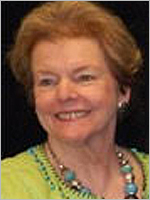 Elaine Craft
Elaine Craft Director
SC ATE Center of Excellence
Biography
Elaine Craft has served as Director of the National Science Foundation-funded South Carolina Advanced Technological (SC ATE) Center of Excellence since 1994. Currently, she is also PI for the NSF ATE Mentor-Connect: Leadership Development and Outreach project and a Co-PI for the SC ATE National Resource Center for Expanding Excellence in Technician Education. Craft is also founder and President/CEO of SCATE Inc., a 501(c)(3), not-for-profit corporation created to promote systemic change in Advanced Technological Education and help sustain the SC ATE Center of Excellence. Elaine received her B.S. in Chemical Engineering from the University of Mississippi and a MBA from the University of South Carolina.
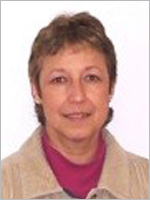 Mel Cossette
Mel Cossette Executive Director/PI
MatEdU
Biography
Mel Cossette, Executive Director/PI for the National Science Foundation ATE-funded National Resource Center for Materials Technology Education (MatEdU) and PI for the ATE-funded Project Technician Education in Additive Manufacturing and Materials (TEAMM), both housed at Edmonds Community College, Lynnwood, Washington. I have over 20 years of experience in manufacturing education, have developed technician training programs for industry and educational institutions, serve on numerous committees and national boards and worked in various industries prior to holding administrative positions in the community and technical college system.
VIEW Q & A RECORDING VIEW TRANSCRIPT
Thursday, March 9, 2017
Grant Proposal Resources, Roadmaps, and Timelines
This webinar will provide an insider’s look at unique characteristics of National Science Foundation (NSF) grant funding, particularly the Advanced Technological Education (ATE) Program. Guidelines and timelines will be shared along with tips to keep in mind if you have previously been funded by NSF ATE for a smaller grant and aspire to submit a proposal for a larger scope of work. Resources specific to preparing a competitive NSF ATE grant proposal will be highlighted.
Presenters:
 Elaine Craft
Elaine Craft Director
SC ATE Center of Excellence
Biography
Elaine Craft has served as Director of the National Science Foundation-funded South Carolina Advanced Technological (SC ATE) Center of Excellence since 1994. Currently, she is also PI for the NSF ATE Mentor-Connect: Leadership Development and Outreach project and a Co-PI for the SC ATE National Resource Center for Expanding Excellence in Technician Education. Craft is also founder and President/CEO of SCATE Inc., a 501(c)(3), not-for-profit corporation created to promote systemic change in Advanced Technological Education and help sustain the SC ATE Center of Excellence. Elaine received her B.S. in Chemical Engineering from the University of Mississippi and a MBA from the University of South Carolina.
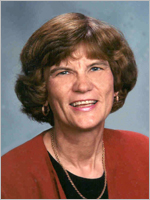 Elizabeth Teles
Elizabeth Teles Retired
Lead Program Director NSF
Biography
Dr. Teles retired from NSF in January 2009 as the Lead Program Director of the Advanced Technological Education (ATE) Program in the Division of Undergraduate Education (DUE) and a program director for mathematics. She now works primarily in the ATE and SSTEM programs as an intermittent expert for NSF half time for approximately 130 days a year. At NSF she was Liaison for Community Colleges. She taught mathematics at Montgomery College, MD from 1969 to 1991. Dr. Teles holds a B.A. in mathematics from Winthrop College, a MAT in mathematics from Johns Hopkins University, and a Ph.D. in mathematics education from the University of Maryland. In 2008, she received the NSF Meritorious Service Award, the second highest honorary award at the Foundation, for her work on behalf of community colleges and her leadership in the ATE program.
 Mel Cossette
Mel Cossette Executive Director/PI
MatEdU
Biography
Mel Cossette, Executive Director/PI for the National Science Foundation ATE-funded National Resource Center for Materials Technology Education (MatEdU) and PI for the ATE-funded Project Technician Education in Additive Manufacturing and Materials (TEAMM), both housed at Edmonds Community College, Lynnwood, Washington. I have over 20 years of experience in manufacturing education, have developed technician training programs for industry and educational institutions, serve on numerous committees and national boards and worked in various industries prior to holding administrative positions in the community and technical college system.
VIEW SLIDES VIEW RECORDING VIEW TRANSCRIPT
Thursday, February 23, 2017, 2pm ET
Q & A: A Follow-Up Discussion on:
Grants and Innovation – A Great Match
This session will provide an opportunity for viewers of the recent CCTA webinar: Grants and Innovation – A Great Match, to discuss questions they may still have concerning information shared at the Feb.16th webinar.
Presenters:
 Celeste Carter
Celeste Carter Lead Program Officer
National Science Foundation
Biography
Celeste Carter is the Program Director for the Division of Undergraduate Education (DUE) at the National Science Foundation (NSF). She received her Ph.D. in Microbiology from the Pennsylvania State University School of Medicine in 1982 under the direction of Dr. Satvir S. Tevethia. She completed her postdoctoral studies in the laboratory of Dr. G. Steven Martin at the University of California at Berkeley. Carter joined the Division of Biological and Health Sciences at Foothill College in 1994 to develop and head a Biotechnology Program. She served as a Program Director twice in DUE as a rotator. Carter accepted a permanent Program Director position in DUE in 2009; she is the Lead Program Director for the Advanced Technological Education (ATE) Program, and works on other programs in the Division and across the Foundation. She served as the Education and Human Resources Liaison to the Division of Polar Programs from 2012 to 2014.
 Ann Beheler
Ann Beheler Principal Investigator (PI)
National Convergence Technology Center (CTC)
Biography
Ann Beheler has been in the Information Technology industry for over 30 years, and she is now responsible for Emerging Technology grants at Collin College. In that capacity she leads the National Convergence Technology Center, a $4.4 million National Science Foundation Center of Excellence. She has also recently completed an almost $20 million DOL TAACCCT grant. A major focus of these grants is sharing resources including initiatives, curriculum, equipment, and general best practices among 46+ colleges to improve programs nationally. Beheler has experience in industry, leading her own consulting firm, teaching the first vendor-specific networking degree program in Texas, and managing IT-related corporate divisions. She has prior experience as a Vice President of Academic Affairs and as a Dean.
VIEW Q & A RECORDINGVIEW TRANSCRIPT
Thursday, February 16, 2017, 2pm ET
Grants and Innovation – A Great Match
Competitive grants for the NSF ATE program must be built on at least one innovative idea and the goals must be well-defined and clearly explained. However, framing an innovative idea and clearly explaining goals can be difficult. Further, proposal development requires a great deal of planning and a detailed timeline. This session will focus on planning for grant proposal development and will explore how to determine whether or not an idea is innovative, what is meant by developing and explaining goals clearly and what must be considered in planning development work and the timeline for such work.
A follow-up question and answer webinar session will be provided, Thursday, February 23, 2pm ET, to address and discuss any questions attendees may have concerning the materials shared today. To register for this Q & A session, please see below.
Presenters:

Celeste Carter
Lead Program Officer
National Science Foundation
Biography
Celeste Carter is the Program Director for the Division of Undergraduate Education (DUE) at the National Science Foundation (NSF). She received her Ph.D. in Microbiology from the Pennsylvania State University School of Medicine in 1982 under the direction of Dr. Satvir S. Tevethia. She completed her postdoctoral studies in the laboratory of Dr. G. Steven Martin at the University of California at Berkeley. Carter joined the Division of Biological and Health Sciences at Foothill College in 1994 to develop and head a Biotechnology Program. She served as a Program Director twice in DUE as a rotator. Carter accepted a permanent Program Director position in DUE in 2009; she is the Lead Program Director for the Advanced Technological Education (ATE) Program, and works on other programs in the Division and across the Foundation. She served as the Education and Human Resources Liaison to the Division of Polar Programs from 2012 to 2014.

Ann Beheler
Principal Investigator (PI)
National Convergence Technology Center (CTC)
Biography
Ann Beheler has been in the Information Technology industry for over 30 years, and she is now responsible for Emerging Technology grants at Collin College. In that capacity she leads the National Convergence Technology Center, a $4.4 million National Science Foundation Center of Excellence. She has also recently completed an almost $20 million DOL TAACCCT grant. A major focus of these grants is sharing resources including initiatives, curriculum, equipment, and general best practices among 46+ colleges to improve programs nationally. Beheler has experience in industry, leading her own consulting firm, teaching the first vendor-specific networking degree program in Texas, and managing IT-related corporate divisions. She has prior experience as a Vice President of Academic Affairs and as a Dean.
VIEW SLIDES VIEW PREP TEMPLATE VIEW RECORDING VIEW TRANSCRIPT
Thursday, January 19, 2017
What Can We Know About Our Graduates As They Enter the Workforce?
Today it is critical to know more about our community college graduates as they leave us. We are driven to demonstrate the effectiveness of our programs and the achievement of gainful employment for our graduates. Direct knowledge is difficult to come by. This webinar will address the question, “What can we know?” and illustrate approaches, attempts and best practices to actually obtain information about our students as they enter and participate in the workforce. The webinar features best practices from the statewide survey to assess employment outcomes for students who have participated in career and technical education coursework at California community colleges. In addition we will discuss approaches tried and implemented at the Maricopa Community Colleges in Arizona.
Presenters:

Michael Lesiecki
Director
MATEC
Biography
Mike Lesiecki, PhD, is the director of the Maricopa Advanced Technology Education Center (MATEC) at the Maricopa Community Colleges. He is the Principal Investigator for a grant from the National Science Foundation’s Advanced Technological Education program. Mike has been the host and facilitator of over 200 professional development webinars, working with a diverse group of clients to provide materials, and training that enables students, faculty, and technicians to continuously master the evolving competencies in science, mathematics, technology, and communications required by the workforce of the semiconductor, electronics, and advanced manufacturing industries. Mike received his PhD in Physical Chemistry from Oregon State University and has 27 peer-reviewed journal publications and one patent. He has taught in university, community college, and high school settings and worked in high tech industries as well.
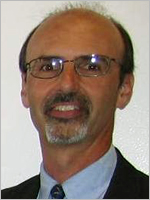
John Carrese
Director
San Francisco Bay Center of Excellence for Labor Market Research
Biography
John Carrese is the Director of the San Francisco Bay Center of Excellence for Labor Market Research hosted at City College of San Francisco. The Center is one of seven regional Centers of Excellence funded by the Chancellor’s Office of the California Community Colleges. John implements the Center’s research, environmental scanning, partnership development, and technical assistance activities on behalf of the 28 community colleges in the Bay Area.
John has over 25 years of experience in the workforce and economic development field and has worked at City College of San Francisco for the past 18 years. He is skilled in designing and evaluating performance-based training programs, facilitating project teams, and is a trained facilitator of the DACUM (Developing a Curriculum) process with industry and college partners.
VIEW SLIDES VIEW RECORDINGVIEW TRANSCRIPT





















